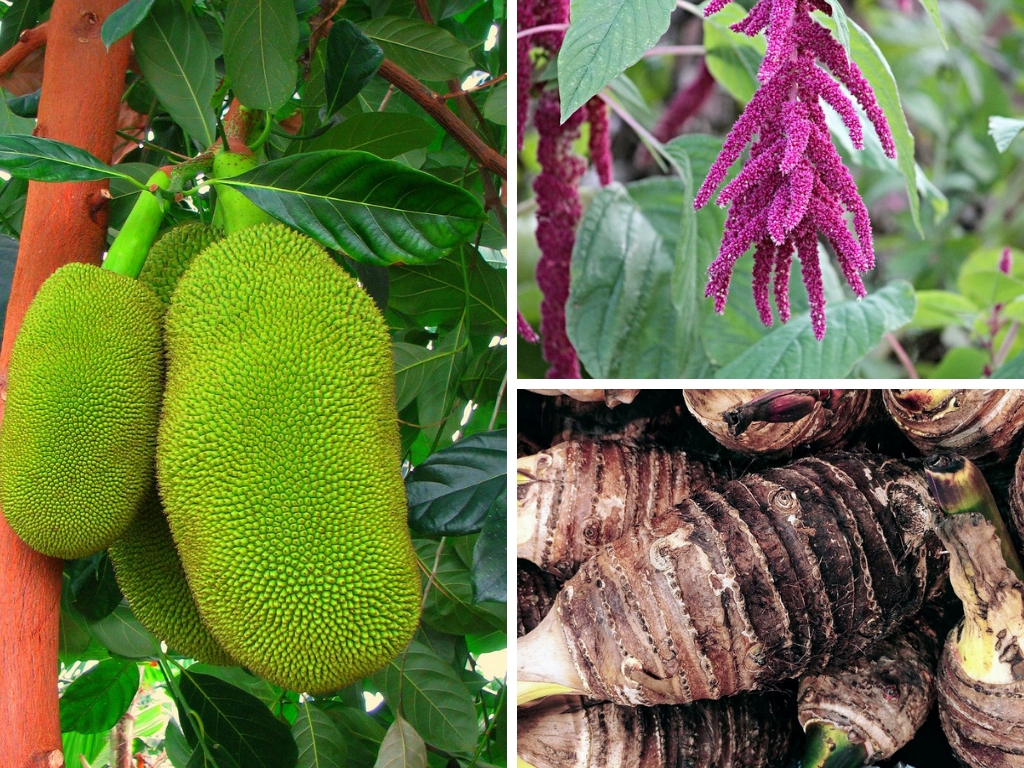 A number of crops forgotten over the past century are being rediscovered worldwide. Regardless of whether they are called “neglected and underutilized”, “orphans”, “forgotten foods,” “minor crops” or even “future smart foods,” farmers are ever more aware that many undervalued crops have the power to combat hunger and malnutrition, respond to climate change, promote biodiversity, improve rural livelihoods and support healthier and more secure food systems.
A number of crops forgotten over the past century are being rediscovered worldwide. Regardless of whether they are called “neglected and underutilized”, “orphans”, “forgotten foods,” “minor crops” or even “future smart foods,” farmers are ever more aware that many undervalued crops have the power to combat hunger and malnutrition, respond to climate change, promote biodiversity, improve rural livelihoods and support healthier and more secure food systems.
According to the UN’s Food and Agriculture Organization (FAO), “These crops are often overlooked by policymakers, researchers and extension agents. In fact, governments rarely allocate resources for their promotion and development. That results in farmers planting them less often, reduced access to high quality seeds, and loss of associated traditional knowledge. Adding new species to our diets can also result in better supply of particular nutrients, i.e. essential amino acids, fiber, proteins. In addition to diversifying nutritional intake, neglected and underutilized crops provide economic and environmental benefits. Farmers can grow them on their own, as part of crop rotation systems or inter-plant them with other crops, protecting and enhancing agro-biodiversity at the field level. Having a bigger number of species to choose in a crop rotation system allows farmers to have a more sustainable production system. By changing species in a crop rotation system the cycle of some pests and diseases is disrupted and probabilities of infestations are reduced.”
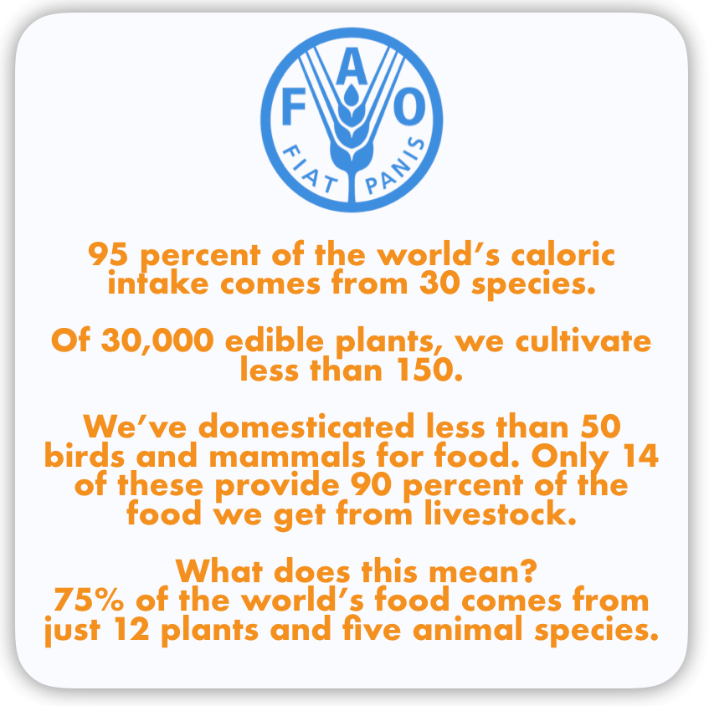 Partners in the Global Forum on Agricultural Research and Innovation (GFAR) have identified the need to establish a collective movement on forgotten foods through a large-scale Collective Action. The Collective Action will establish a critical mass of activities at local, national, regional and global levels and advocacy around forgotten foods from forgotten crops.
Partners in the Global Forum on Agricultural Research and Innovation (GFAR) have identified the need to establish a collective movement on forgotten foods through a large-scale Collective Action. The Collective Action will establish a critical mass of activities at local, national, regional and global levels and advocacy around forgotten foods from forgotten crops.
The Collective Action aims to:
- promote collective advocacy to increase public awareness of the value and importance of forgotten foods and provide a global knowledge base that can support stakeholders across the whole value chain
- promote national multi-stakeholder think tanks and knowledge sharing hubs;
- help scale up impacts at global, regional, national and local levels;
- develop new metrics based on wider values - such as nutrition and health, cultural and social importance, environmental services, climate change, women’s empowerment and sustainability; and
- pursue fair agricultural policies that promote the development and maintenance of forgotten foods from forgotten crops.
The involvement of empowered smallholder farmers in the development and implementation of the Collective Action will be one of its most valuable features.
GFAR Collective Action on Forgotten Foods will also support partners’ initiatives to socialize success stories and identify best practices; empower smallholder farmers for the conservation and use of forgotten foods; link ex situ and on-farm conservation; promote participatory plant breeding; improve policy and legal frameworks allowing smallholder farmers to conserve, exchange, use and sell forgotten foods from forgotten crops.
The Rediscovered Foods Initiative
Under the umbrella of the Collective Action on Forgotten Foods, the American NGO Lexicon of Sustainability[1], one of GFAR’s partners, announces the REDISCOVERED FOODS INITIATIVE (RFI), supported by GFAR, Crop Trust, Crops for the Future, Bioversity International, Culinary Institute of America, Google, Slow Food, and the Future Food Institute. The initiative gathers farmers, particularly smallholder farmers, plant geneticists, seed collectors, food entrepreneurs, community organizers, chefs, nutritionists, and scientists from across the globe to tell the amazing story of 25 crops which been re-discovered, conserved, improved, used, exchanged and commercialized, especially through the empowerment of smallholder farmers, particularly rural women and youth.
The initiative will capture the breadth of human ingenuity and the contagiousness of hope with a television series, a book, a traveling exhibit, and mentor support for farmers and food entrepreneurs at ten regional Rediscovered Labs in 2020.
As large sectors of the population in countries like China enter the middle class, they’ve begun developing aspirational diets that mimic what they see in Western culture, especially the consumption of red meat. Unfortunately, there simply aren’t enough cattle on the planet to meet this new demand, no matter how many forests get cut down.
What’s happening in China is compounded across the globe by rapidly accelerating population growth. Increased competition for food and valuable resources, climate change and water scarcity are all putting tremendous stress on those who grow our food.
Bold new initiatives are needed to feed the planet, especially those that include eating less meat and adapting more plant-forward diets, but instead of growing a more diverse range of foods, we’re actually growing less.
Since the 1900s, farmers worldwide have abandoned many of their traditional crops in favor of even more genetically uniform, high-yielding varieties. Today, over half the world’s plant-based nutrition comes from just 3 crops: corn, wheat, and rice. Our ecosystem biodiversity is threatened and people are malnourished. Can this trend toward intensive production of select crops be reversed? Yes.
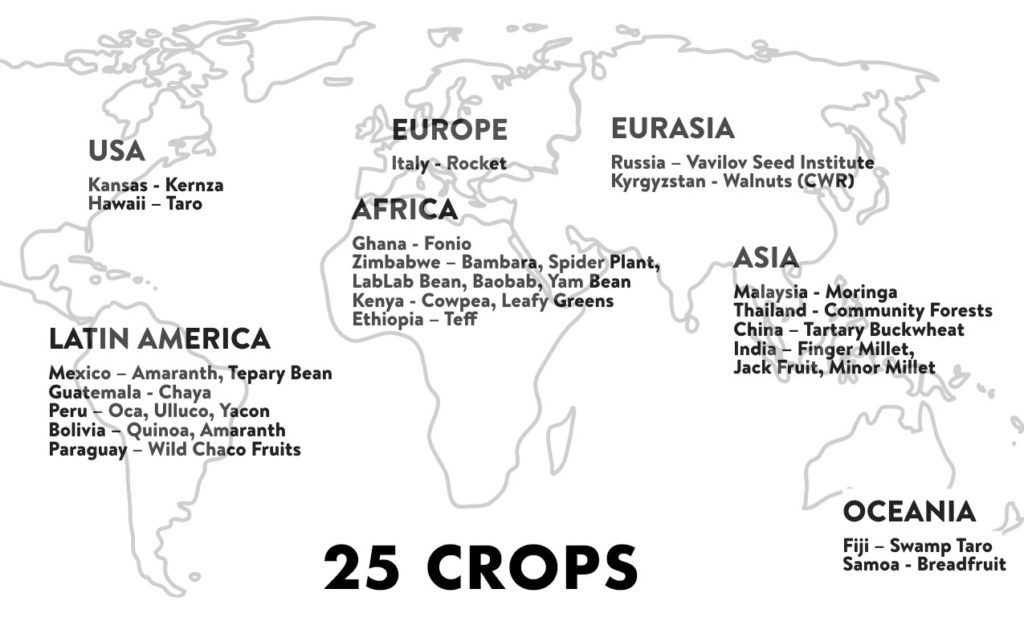 RFI will share the inspiring story of farmers from Asia to Africa and across South America who’ve turned to 25 forgotten super crops with the power to feed the world by first feeding their own communities. It’s a moving journey, one that will bring their communities a pathway to economic self-reliance, greater food security, lower health costs, increased resilience to combat impacts of the climate crisis, healthy circular economies at work and nutritional security at home. It will show in pictures and words what success looks like.
RFI will share the inspiring story of farmers from Asia to Africa and across South America who’ve turned to 25 forgotten super crops with the power to feed the world by first feeding their own communities. It’s a moving journey, one that will bring their communities a pathway to economic self-reliance, greater food security, lower health costs, increased resilience to combat impacts of the climate crisis, healthy circular economies at work and nutritional security at home. It will show in pictures and words what success looks like.
RFI stories will range from tartary buckwheat harvests on the crimson steppes of Zhaotong in China’s Yunan province to the safeguarding of heirloom roots and tubers by Bolivian farmers high up in the Andes, and from water-starved farms that cope with climate change in Ghana by turning for sustenance to the leaves and branches of moringa trees to the rich forest harvests burgeoning with wild chaco fruit in the Amazon.
The initiative will follow the migration of 25 forgotten foods over continents, even crossing oceans as they adapt to new climates and foreign geography. Grains like amaranth and millet, and trees producing jackfruit and breadfruit, can now be found across the globe, proving new sources of nutrition to feed their communities.
RFI will also grapple with big ideas, revealing the close connection of food and cultural identity, the breadth of human ingenuity and the contagiousness of hope as food producers provide livelihoods for women, help developing countries empower rural smallholders and local economies, and show how scientists and enabling technologies help farmers adapt in the face of climate change.
What Defines a Rediscovered Food?
The selection of these crops was made by RFI according to the following SEVEN CRITERIA that measure the successful implementation and utilization of these underutilized species:
- Increase biodiversity;
- provide resilience to climate change;
- provide nutrient security by adopting locally sourced, plant forward diets;
- provide women with better livelihoods;
- provide farmers with knowledge sharing and crop support;
- support all stakeholders in the value chain to create opportunities for social entrepreneurs, stimulate local economies building a more circular economy; and
- promote responsible conservation and farming practices that safeguard the environment and ensure sustainable food supply.
The Rediscovered Lab
Phase I of the Re-discovered Foods Initiative will document success stories of 25 crops from around the globe that are transforming rural communities by providing nutrient security, enhancing biodiversity, supporting local economies and increasing resilience to climate change.
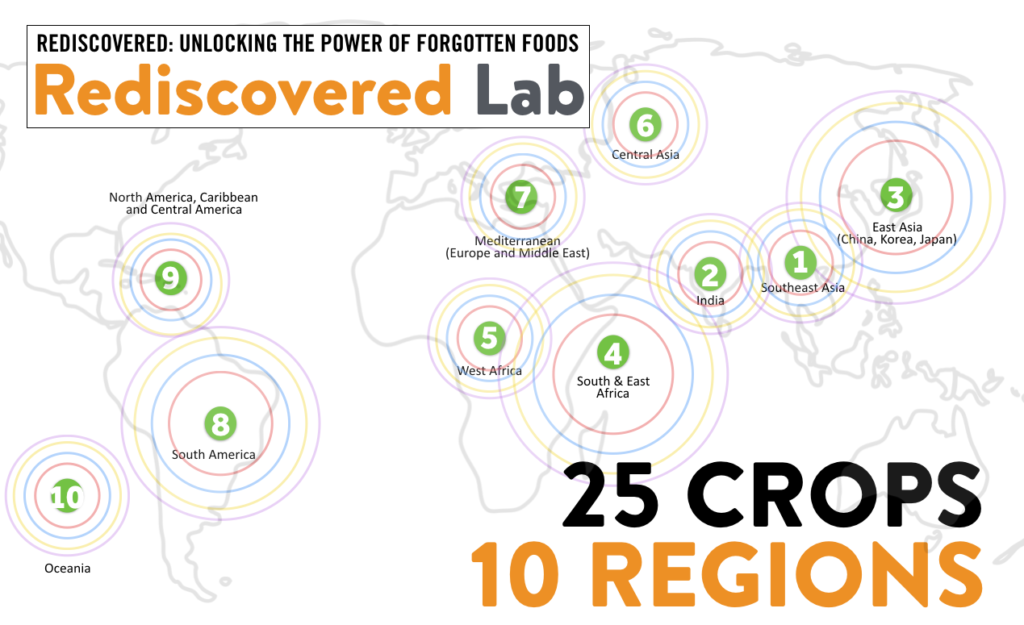 In 2020, Phase II will use the illuminating stories behind The Lexicon’s books, films, and international exhibits as inspiration for ten Rediscovered Labs around the world to create impact pathways that bring these low-cost, agricultural solutions to a wider audience and provide communities with the power to scale up global solutions on a local level. These multi-day educational events—produced by The Future Food Institute, based in Bologna, Italy—will include:
In 2020, Phase II will use the illuminating stories behind The Lexicon’s books, films, and international exhibits as inspiration for ten Rediscovered Labs around the world to create impact pathways that bring these low-cost, agricultural solutions to a wider audience and provide communities with the power to scale up global solutions on a local level. These multi-day educational events—produced by The Future Food Institute, based in Bologna, Italy—will include:
THREE CASE STUDIES. Each regional Rediscovered Lab begins by using the stories behind three rediscovered foods from that geographic area. The people and their successful practices will provide a model for others to replicate in their own communities. Participants will include farmers, crop breeders, soil scientists, nutritionists, chefs, conservationists, NGOs, farmers’ organizations, local food system experts, policy makers, and journalists.
KNOWLEDGE SHARING. Focused activities based on the case studies will showcase successful entrepreneurial business modeling. Sharing this information will empower smallholder farmers by sharing capacity building strategies in nutrition, farming practices, conservation and seed exchange and sharing.
CHEF AND NUTRITIONIST SHOWCASE. RFI will source and employ each region’s brightest emerging culinary stars and invite them to demonstrate how rediscovered foods can be used in restaurants, food service and in the home, shattering the myth that these are “poor people’s foods”. They will also be joined by nutritionists who explore a variety of uses for these crops based on culinary traditions and improving health outcomes.
ENTREPRENEUR SUPPORT. Food startups based on these rediscovered foods will present their value added food products in a competitive pitch-competition and receive valuable startup and marketing support from Rediscovered Lab mentors to help build their businesses and reach new customers.
MARKETING AND COMMUNICATIONS. Each Rediscovered Lab introduces a simple, unified storytelling system so people can create their own cultural and language specific knowledge products to share with their communities and policymakers. Tools may include Mobile Apps; Consumer Messaging; Packaging Design; Age-specific Curriculum; Pop Up Exhibits; White Papers for Policy Makers; Educational Films; and Radio Programs.
Together, these events will provide the local application of global solutions, using knowledge sharing to accelerate capacity building, establish new networks that economically scale success and create a multiplier effect that helps transform local economies.
RFI Partners
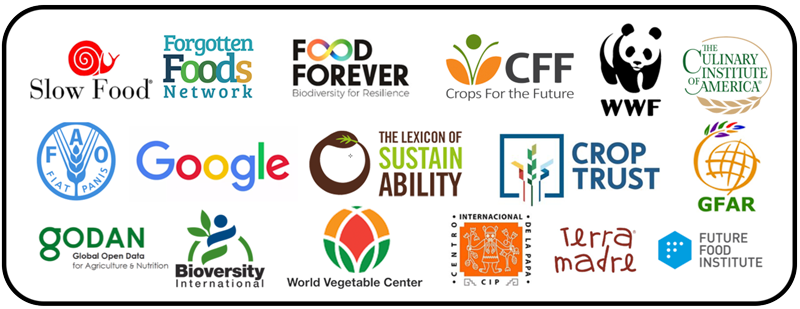
As part of the GFAR Collective Action on Forgotten Foods, the Rediscovered Food Initiative provides a great opportunity to link with different stakeholder groups to exchange information; join efforts for scaling up impacts and bring real change; achieve complementarities and identify existing gaps; empower smallholder farmers and with them the whole value chain; improve food and nutrition security; and provide sufficient information for better policy and legal frameworks. Skills of the partners involved range from providing research, crop science and plant breeding support (FAO, Crops for the Future and Bioversity International), safeguarding against crop erosion by building and promoting seed banks and sound conservation practices to ensure biodiversity (Crop Trust and Food Forever), and sharing cultural and culinary knowledge (Slow Food and Culinary Institute of America). Furthermore, GFAR’s global network allows relevant stakeholders to scale up impacts at local, national and global levels; provides capacity and public awareness on the rights of smallholder farmers over their crops and traditional knowledge; and ensures that farmers are at the center of innovation, enhancing their participation in innovation and decision-making processes.
The Lexicon of Sustainability will provide all graphics, assets, and storytelling systems and facilitate all documentation for the campaign. The materials created will be shared back through local NGO organized networking opportunities at community pop up art gatherings and through the discovery labs. Additionally, partnerships to utilize the campaign and labs will be extended to other existing initiatives such as local landrace conservation groups, local landrace production initiatives, seed fairs, community seed banks and community based conservation and adaptation activities. There will be efforts to expand key stakeholders for distribution to include local doctors, medical experts and staff, restaurateurs, chefs and foodservice providers in the local regions to become ambassadors and facilitate the acceleration of acceptance of recipes and crop branding that extols beneficial genetic diversity and health benefits.
[1] The Lexicon is a US-based NGO that provides communications strategy on food and agriculture, with a focus on sustainability. Its award-winning storytellers tell aspirational stories of real people sharing sustainable solutions to help drive behavior change.
Learn more about The Lexicon and the Rediscovered Food Initiative here.
